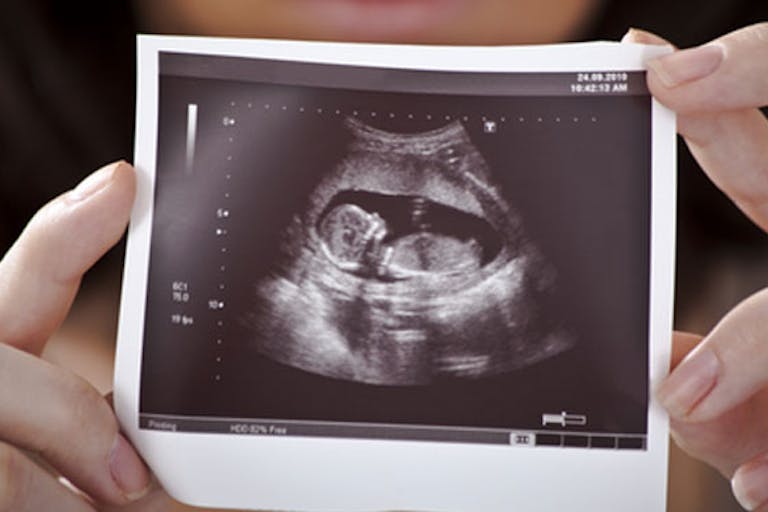
New Archbishop of Canterbury warns of danger in legalizing assisted suicide
Nancy Flanders
·
Self-described Christian thinks humanizing preborn children ‘shames’ women
On Tuesday, Relevant, the self-described “leading platform reaching Christian twenty- and thirtysomethings,” published an editorial that reads more like an attempt to sway Christians to twentysomething-ism rather than the other way around.
Crystal Marie’s piece “Do Stricter Laws Prevent Abortion? A closer look at the controversial Texas rule” begins by professing that “most people” on both sides of abortion “are interested in eliminating abortions, as well as the reasons a woman may feel compelled to have one”—a contention that’s hard to square with the complete lack of any sizeable “pro-choice” revolt to their leaders digging in their heels and going to war against any possible effort to reduce (or even merely discourage) abortion at the margins, even the most monstrously late-term abortions. Marie writes:
Where the two groups tend to disagree is how to do it. Those who support making abortion illegal point to the fact that a fetus has a heartbeat at six weeks, and therefore, the termination of a pregnancy is the equivalent of killing a person. Proponents for anti-abortion legislation believe they are reduced when our legal system makes them harder to obtain. Proponents for an individual’s reproductive rights support data suggesting comprehensive sex education and birth control reduce abortion rates when young people have access to them.
Could the language in this paragraph be any more slanted? Pro-choicers get “an individual’s reproductive rights,” but rather than “proponents of the right to life” or “protecting babies” or something, pro-lifers just get “making abortion illegal.” Worse, Marie writes as if only her side has data—“data” in this case being an outdated study whose flaws I covered here four years ago—when in reality there is plenty of data confirming the effectiveness of abortion restrictions, taxpayer funding restrictions, ultrasound laws, and waiting periods.
(And yes, abortion is her side. She doesn’t identify herself as such at Relevant, but on her personal blog Marie declares herself a “pro-life” supporter of Planned Parenthood, with “pro-life” meaning just about anything except protecting babies.) She continues:
Regardless of the legislation we support or what we believe is our civic duty is, our first obligation (after our relationship with Christ) is our responsibility to each other (1 John 4:21). It is our responsibility to love and care for those who Christ calls the “least of these”; this includes women who are facing the difficulty of an unplanned pregnancy and uncertainty about what to do next.
Obviously true, but just as obviously a non-sequitur, as the pro-life movement has been passionate about helping these women all along (efforts which Marie’s allies, supposedly so concerned that pregnant women get the support they need, constantly attack and demonize). So that leaves us with just one problem area: why the author omits preborn children from the “least of these.”
Next, Marie finally gets to the Texas fetal burial law:
Supporters of the law state the purpose is to “provide dignity for ‘unborn infants.’” However, a lead proponent of the law, Mark Harrington of Created Equal, has also made it clear that the true motive of many of the law’s supporters is for women to realize “it isn’t just a blob of tissue” if they have to decide whether to bury or cremate the remains.
Fact-check: the mothers aren’t the ones who have to decide, arrange, or pay for final disposition of their child’s remains; that’s all on the abortionist (unless the mother actively chooses an alternate means of burial).
The legislation, which was drafted by the Americans United for Life explicitly includes several provisions that require fetal death certificates, proper burials and fetal death reporting. By creating a blanket requirement for all fetal death experiences ranging from miscarriage to abortion (as opposed to making these provisions an option), this bill attempts to force women into a belief they may not espouse.
Moreover, it can feel like an added punishment for a woman who is already in the midst of either a soul-crushing abortion or miscarriage. This roundabout method of preventing abortion risks induces shame for the women who find themselves in this circumstance, and there’s no data to suggest that it will effectively reduce abortion.
Wrong again: last month, the Texas Health and Human Services Commission clarified that the rules don’t apply to home miscarriages or chemical abortions, and that mothers aren’t the ones who need to get death certificates. As for effectiveness, to Planned Parenthood’s chagrin, Texas already has a variety of more proven pro-life laws on the books (with other laws wrongly blocked by an activist court), so they’re moving on to trying new things.
Most important, though, is Marie’s nonsensical contention that emphasizing a settled, objective, scientific fact constitutes “forcing a belief” or “inducing shame.” Can anybody think of one other area where Marie’s allies would tolerate the idea of fake science to prevent anyone else from feeling bad? If anyone feels shame from learning an impartially presented truth, it follows that the messenger isn’t the source of that shame.
She goes on about that for the next few paragraphs, mixing in straw-man arguments about God still loving people who have sex and get pregnant out of wedlock, as well as who have abortions (true, but nobody suggested otherwise), and even suggesting that simply declaring the humanity of children is somehow inconsistent with Christ’s refusal to condemn the adulterous woman.
What a perversion. For the record, while Jesus of course taught compassion and understanding, He also taught that we should clearly and boldly distinguish right from wrong (indeed; His was not a blanket prohibition on moral judgment, but a call to keep humility, consistency, and perspective in mind while doing so). But what Texas is doing doesn’t even go that far; it’s simply drawing attention to an undeniable fact in order to inspire compassion for children.
Inspiring compassion for children… doesn’t that sound like a message worthier of a self-identified Christian publication than discouraging people from feeling bad about them?
Live Action News is pro-life news and commentary from a pro-life perspective.
Contact editor@liveaction.org for questions, corrections, or if you are seeking permission to reprint any Live Action News content.
Guest Articles: To submit a guest article to Live Action News, email editor@liveaction.org with an attached Word document of 800-1000 words. Please also attach any photos relevant to your submission if applicable. If your submission is accepted for publication, you will be notified within three weeks. Guest articles are not compensated (see our Open License Agreement). Thank you for your interest in Live Action News!

Nancy Flanders
·
Analysis
Cassy Cooke
·
Analysis
Nancy Flanders
·
Newsbreak
Angeline Tan
·
Human Interest
Nancy Flanders
·
Issues
Nancy Flanders
·
Politics
Calvin Freiburger
·
Guest Column
Calvin Freiburger
·
Abortion Pill Reversal
Calvin Freiburger
·
Guest Column
Calvin Freiburger
·
Abortion Pill Reversal
Calvin Freiburger
·